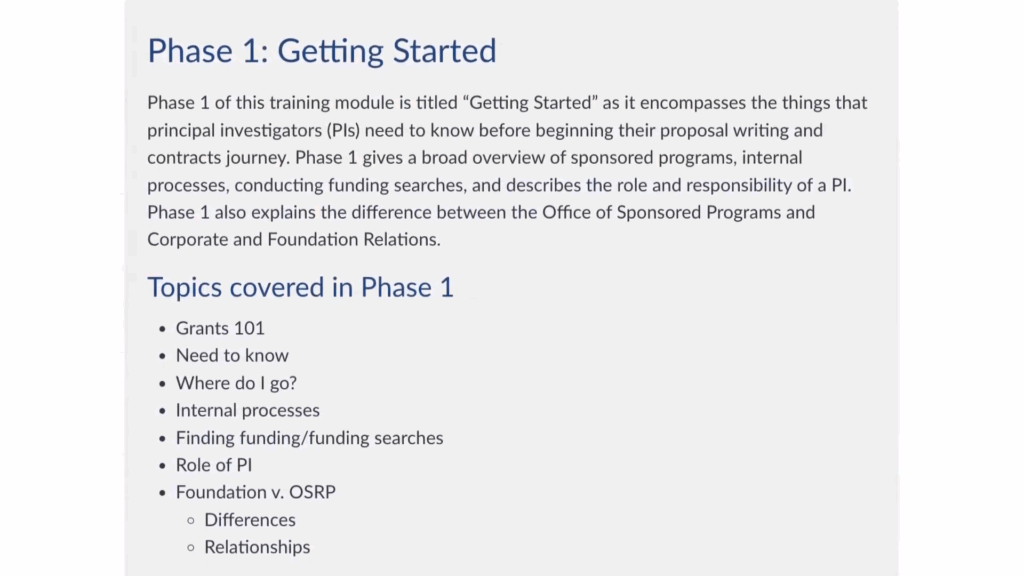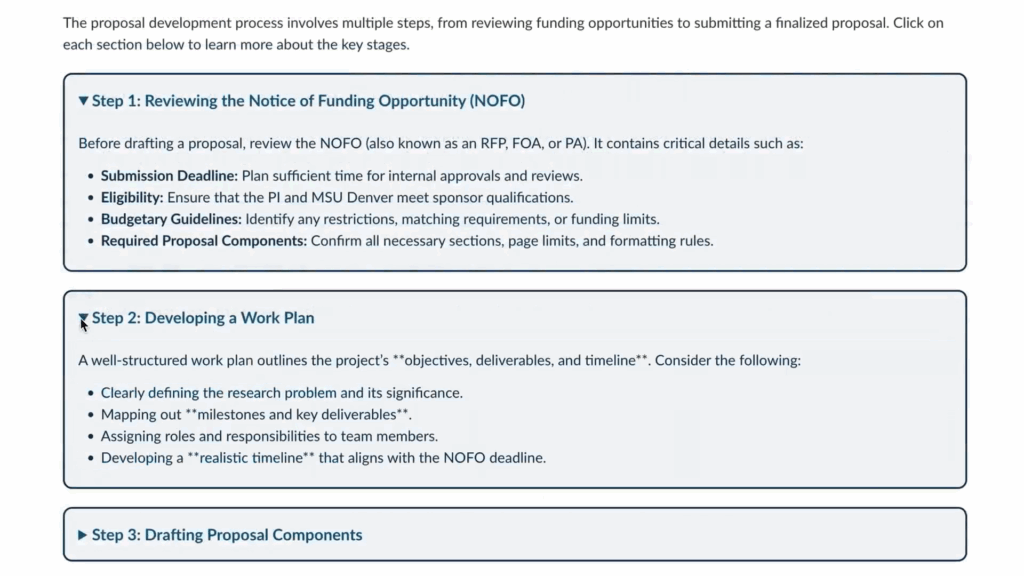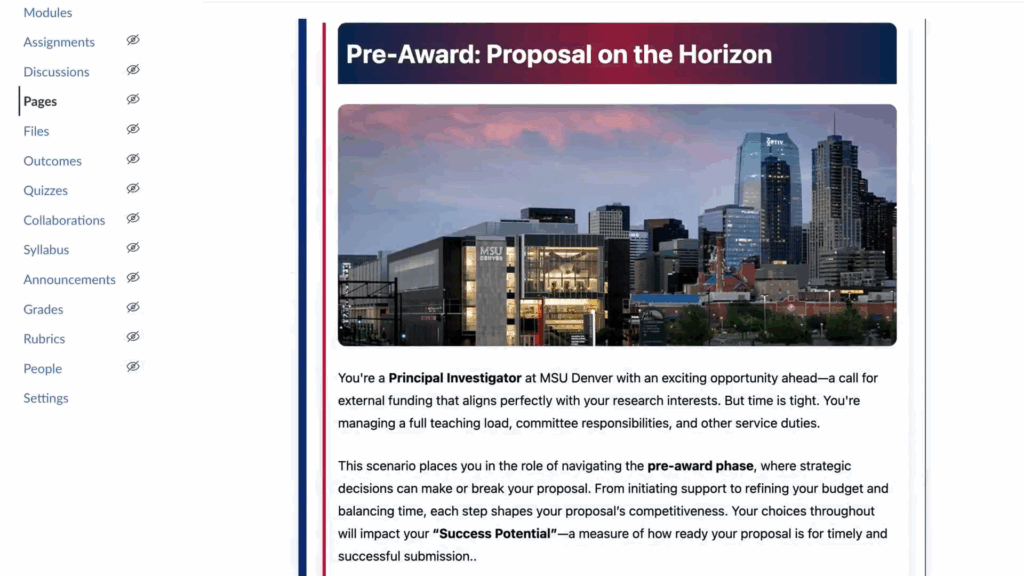Last updated on October 28, 2025
The Center for Teaching, Learning, and Design (CTLD) at MSU Denver partners with faculty and staff to create focused, effective learning experiences tailored to the needs of the university community. By combining instructional design expertise with practical tools and collaborative support, CTLD delivers training resources that make a measurable impact. The Principal Investigator Certification program is one example of how CTLD helps researchers build essential skills for proposal development and project success.
MSU Denver has introduced the Roadrunner Principal Investigator Certification, an online program developed for faculty and staff who manage grant-funded projects. The course walks participants through each stage of a grant, from getting started to preaward and postaward activities, with an optional module on private foundation grants. The certification is required for all new and current principal investigators and must be renewed every three years. Those who complete the program earn a digital microcredential issued by the Office of Online Learning that highlights their expertise in research leadership and compliance. Full-time faculty and staff members who qualify for the certification can find the training on the dashboard in their Canvas accounts.
Contents
- 1 Video Spotlight
- 2 Phase 1: Getting Started – Course Overview
- 3 Usability and Practical Design
- 4 Interactive and Engaging Features
- 5 Real-World Application with Scenarios
- 6 Simplifying Complex Processes with Video Lectures
- 7 Partnering for Continuous Improvement in Teaching and Learning
- 8 Want to get involved?
- 9 Have questions?
Video Spotlight
PICERT Video Spotlight [Length 4:46, CC Available]
Phase 1: Getting Started – Course Overview
Phase 1: Getting Started serves as the foundation for the Principal Investigator Certification program. This course, developed in partnership with the Office of Sponsored Research and Programs, guides researchers through the essential steps of navigating research funding processes.

Usability and Practical Design
The partnership between CTLD and the Office of Sponsored Research and Programs focuses on making training accessible and relevant. The course incorporates frameworks like Gagné’s Nine Events of Instruction and Mayer’s Cognitive Theory of Multimedia Learning to present practical, easy-to-apply concepts.
CTLD collaborated with subject-matter experts to organize their knowledge into concise, actionable lessons. The goal is to ensure programs like the Principal Investigator Certification are straightforward and meet the specific needs of researchers at MSU Denver.
Interactive and Engaging Features
The course design includes features that support active engagement:
- Video Lessons: Brief, clear videos deliver essential information in an easy-to-follow format.
- Knowledge Checks: Ungraded questions encourage participants to think critically and assess their understanding.
- Interactive Course Pages: Elements like toggles, tabs, and progressive reveals help break down information into manageable steps.

Real-World Application with Scenarios
A key feature of the program is a branching scenario where participants face realistic challenges common to Principal Investigators. Learners make decisions, observe outcomes, and refine their strategies based on feedback, making the lessons practical and directly applicable.

Simplifying Complex Processes with Video Lectures
CTLD worked with the Office of Sponsored Research and Programs to create video lectures filmed in the CTLD studio. These videos explain critical processes and strategies for securing research funding. By breaking down complex topics into accessible content, CTLD ensures participants gain a clear understanding of institutional resources.

Partnering for Continuous Improvement in Teaching and Learning
A significant factor in the success of this and similar projects is the support and funding from the Office of Online Learning (OOL), which has been instrumental in enhancing the quality of our online educational endeavors. OOL’s support and contributions have empowered faculty members to innovate and create a more enriching educational environment for all. Please visit the Office of Online Learning for more information about all that they are doing to help MSU Denver faculty members and students.
Want to get involved?
One way to find help with implementing student supports in your course is the CTLD Course Development Cycle. This is an intensive, but rewarding, process where an instructional designer will work with you over the course of several months to identify course objectives, develop learning activities, create a user-friendly course, record high-quality multimedia content, and much more.
For more information on the CTLD Development Cycle, as well as how to apply to join, please see our CTLD Course Development Cycle spotlight.
Have questions?
Want help on this or other teaching and learning topics? Please visit us for drop-in support (10am-3pm, M-F) or try one of our self-help tutorials.